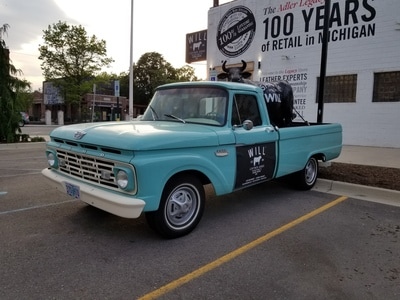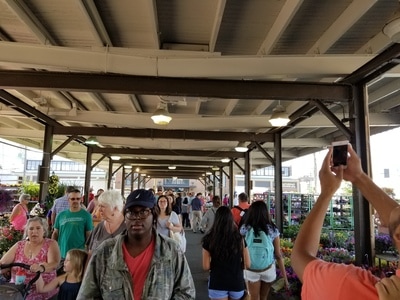I often wondered why people start businesses. Since business and profit follow one another, I always thought it was mainly the money that drove people to entrepreneurship. It is that billion-dollar tech idea that galvanizes the startups. After two weeks in Detroit, I learned entrepreneurship is much more. While some entrepreneurs want to create change globally, others want to create change locally. Likewise, people are willing to not only make money, but also make a positive difference. Maybe entrepreneurship isn’t so simple after all.
Before coming to Detroit, I understood social entrepreneurship as entrepreneurship that has positive social impact. I thought it was “positive social impact”, in which regular entrepreneurs with the label “social entrepreneurs” were more likely to earn sympathy from funders and clients. I couldn’t be further from the truth. During the first week, I visited a blighted Detroit neighborhood, where a startup called RecoveryPark Farms is making positive change. They create permanent jobs for Detroiters, offer quality produce, and is building vacant spaces from the ground up. In contrast with “nonprofits” like CollegeBoard or even Duke University, this nonprofit embraces social entrepreneurship. Even more, at TechTown, students of the DTX program routinely challenge what it means to be an entrepreneur. Leah and I interviewed the founders of social impacting projects like Todoolie, which connects local students to casual jobs. From there, I learned that social entrepreneurship is much more than just projects that have a positive social impact. I believe it is something all entrepreneurs grapple with. It is the “Why” of a company. After hearing about Simon Sinek’s “Golden Circle” countless times, I finally began to recognize the potency of it. The “Why” is what really drives customers and supporters. Isn’t creating a memorable mission and product, which may help change the lives of its workers or customers, social entrepreneurship?
Perhaps social entrepreneurship is best example of that “Why” in startups. People don’t support a product for the product, but for the mission. Perhaps that is why projects with positive social impact are so enduring.
Each successful startup has a story or a mission behind it. On an even larger scale, I feel Detroit is a large social entrepreneurship project. Since the Great Recession, the city has been on a mission to find innovative ways to improve lives the economy left behind. I believe social entrepreneurship and social innovation go hand in hand. It is about creating a positive social mission and finding an innovative solution.
Before coming to Detroit, I understood social entrepreneurship as entrepreneurship that has positive social impact. I thought it was “positive social impact”, in which regular entrepreneurs with the label “social entrepreneurs” were more likely to earn sympathy from funders and clients. I couldn’t be further from the truth. During the first week, I visited a blighted Detroit neighborhood, where a startup called RecoveryPark Farms is making positive change. They create permanent jobs for Detroiters, offer quality produce, and is building vacant spaces from the ground up. In contrast with “nonprofits” like CollegeBoard or even Duke University, this nonprofit embraces social entrepreneurship. Even more, at TechTown, students of the DTX program routinely challenge what it means to be an entrepreneur. Leah and I interviewed the founders of social impacting projects like Todoolie, which connects local students to casual jobs. From there, I learned that social entrepreneurship is much more than just projects that have a positive social impact. I believe it is something all entrepreneurs grapple with. It is the “Why” of a company. After hearing about Simon Sinek’s “Golden Circle” countless times, I finally began to recognize the potency of it. The “Why” is what really drives customers and supporters. Isn’t creating a memorable mission and product, which may help change the lives of its workers or customers, social entrepreneurship?
Perhaps social entrepreneurship is best example of that “Why” in startups. People don’t support a product for the product, but for the mission. Perhaps that is why projects with positive social impact are so enduring.
Each successful startup has a story or a mission behind it. On an even larger scale, I feel Detroit is a large social entrepreneurship project. Since the Great Recession, the city has been on a mission to find innovative ways to improve lives the economy left behind. I believe social entrepreneurship and social innovation go hand in hand. It is about creating a positive social mission and finding an innovative solution.



 RSS Feed
RSS Feed
